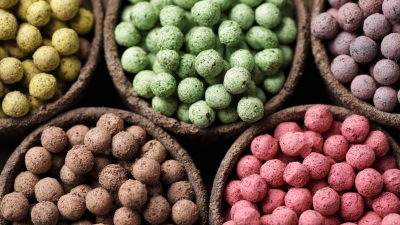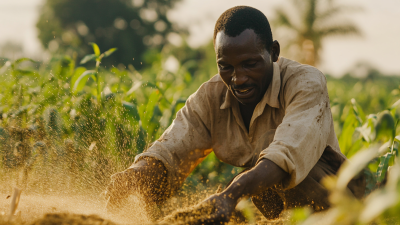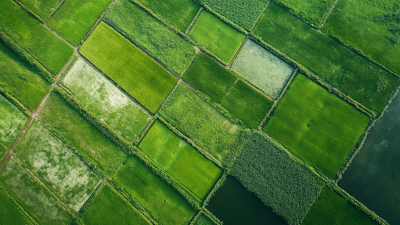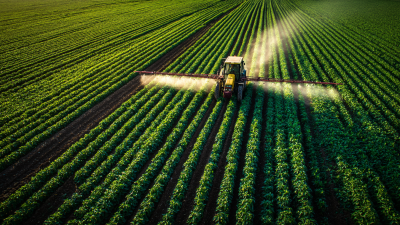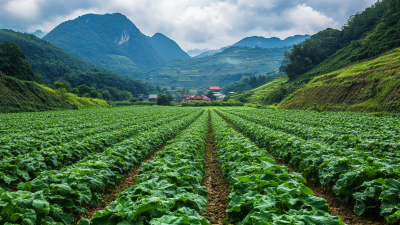 0551-68500918
0551-68500918 





You know, as the global farming world struggles with figuring out how to be more sustainable, there's been a real buzz around finding better alternatives to those traditional fertilizers we’ve all relied on. A recent report from the Food and Agriculture Organization (FAO) even points out that overusing synthetic fertilizers has caused some pretty serious environmental issues—like harming soil health and messing with biodiversity. In the middle of all this, Innovation Meiland (Hefei) Co., LTD. is really stepping up. They're doing some groundbreaking work on new pesticides, formulations, and processes, all aimed at farming in a more eco-friendly way. By exploring fresh options beyond conventional fertilizers, Meiland wants to boost crop yields without hurting the environment—making agriculture more resilient and sustainable in the process.
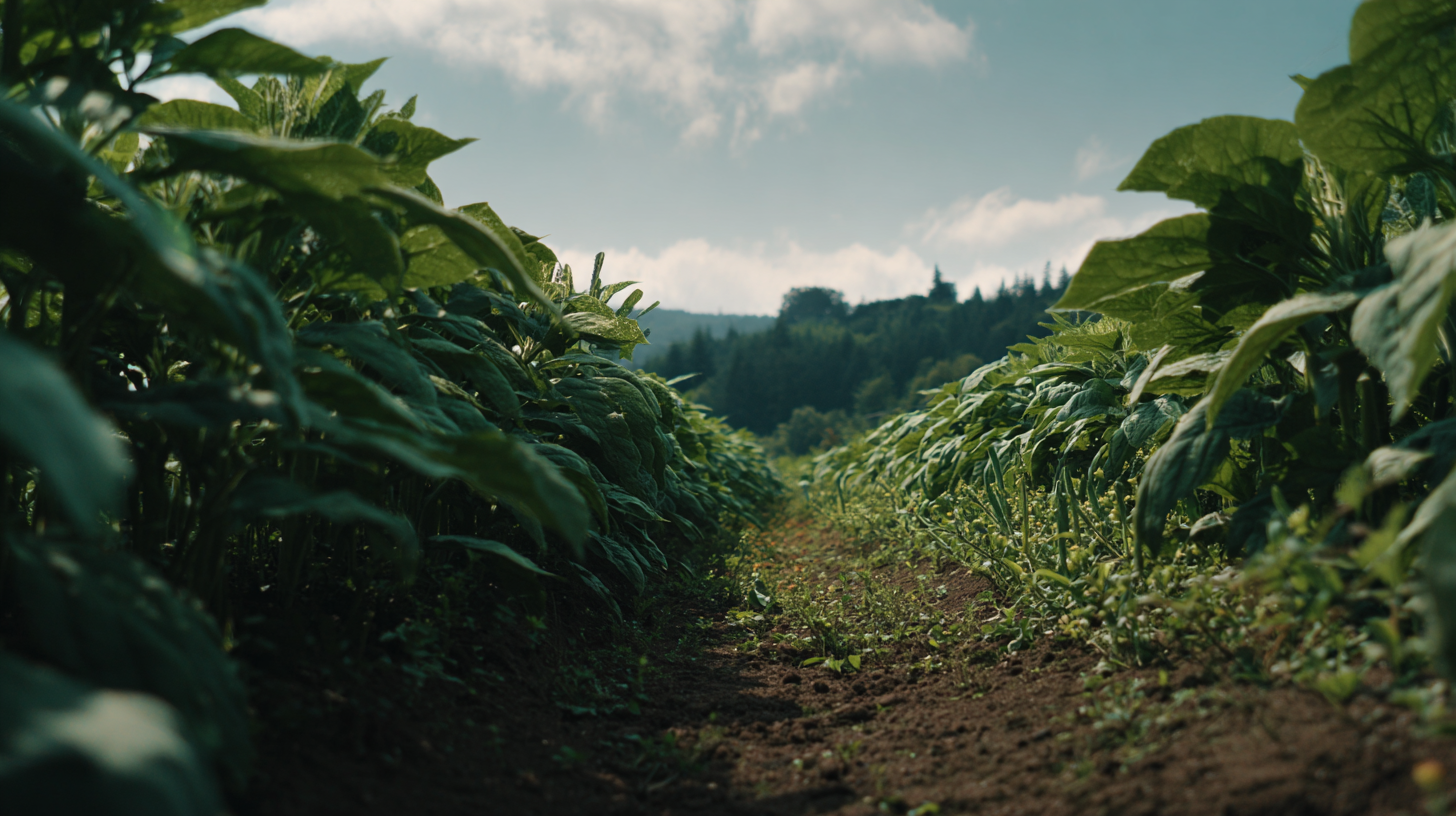
So, when it comes to making farming more sustainable, there's definitely a growing buzz around using biological fertilizers. Farmers are exploring cool alternatives like microbial inoculants, compost teas, and biochar—these are actually showing real promise in boosting both soil health and crop yields. I read in a report by the International Fertilizer Association that switching to biological fertilizers could cut down reliance on chemical ones by as much as 30%. That’s pretty huge—not only does it help the environment, but it also means farmers can save some serious cash, making farming more economically sustainable.
If you're thinking about jumping into using biological fertilizers, a good rule of thumb is to consider what your specific crops need. Doing a soil test is super important because it tells you what’s missing and helps you plan your fertilization on point. Plus, mixing things up with cover crops and crop rotation naturally boosts soil microorganisms and keeps nutrients cycling smoothly.
As agriculture keeps evolving, lots of studies show that going the biological route can lead to better yields and a richer diversity of life on the farm. The FAO mentions that embracing agroecological practices, like biological fertilizers, can bump up farm productivity by around 15-20%. By adopting these eco-friendly options, farmers can become more resilient against climate changes and help feed the world's growing population—all without messing up the environment.
Oh, and a couple of tips: make sure you’re applying these fertilizers at the right rates and times—that’s key to getting the best results. Also, jumping into farmer education programs can really help spread the word and build confidence in using these new, innovative nutrient sources.
So, have you heard about biochar? It’s been gaining a lot of attention these days as this pretty awesome, eco-friendly option in sustainable farming. Basically, it’s made by heating up organic stuff—a process called pyrolysis—turning it into this really stable form of carbon. Not only does it lock away carbon, but it also does some magic for the soil, like boosting its biological activity and chemical makeup. When farmers add biochar to their soil, it helps the ground hold onto water and nutrients way better. That means plants get a steady supply of what they need to grow healthy, which eventually leads to better crops and higher yields — definitely a win-win.
Plus, biochar creates a cozy home for all sorts of good microorganisms. These tiny guys are super important because they help break down organic matter and make nutrients more accessible to the plants. The porous structure of biochar also improves how well the soil breathes—kind of like giving it a little extra space for roots to grow strong and deep. More farmers are looking for ways to cut back on chemical fertilizers, and biochar fits right into that picture. It’s a practical, sustainable alternative that can really make a difference for both environmental health and farm productivity. When you start using biochar as part of your farming routine, you’re basically paving the way for healthier soil and better harvests, all while being kinder to the planet.
This bar chart illustrates the average crop yields (in tons per hectare) achieved with varying percentages of biochar added to the soil, compared to a control group without biochar. The results demonstrate that increasing biochar content can significantly enhance crop productivity, supporting sustainable farming practices.
When it comes to modern farming today, getting a grip on how organic amendments work is pretty important if we're serious about sustainable practices. Composting, for one, isn’t just about tossing organic waste somewhere; it actually transforms that waste into something that'll give your soil a much-needed boost with key nutrients. This can really improve the soil’s health and structure. If you’re working with small farms, you’ll notice these benefits pretty clearly—because healthy soil equals better crop yields. For example, some studies show that using compost made from farm leftovers—like crop residues or animal waste—can really enhance crops such as cotton, especially across different kinds of farming environments.
One smart trick to get the most out of composting is choosing your raw materials wisely. For instance, mixing pig slurry solids with things like cotton gin waste can make a super nutrient-rich compost. Not only does this bump up nutrient efficiency, but it also cuts down on worries about nitrogen escaping into the environment. To make sure everything stays safe and effective, it’s also good to keep an eye on how nutrients behave during composting—so harmful stuff doesn’t build up, and you end up with a safe, productive organic fertilizer.
Some basic tips for composting success? Turn the pile regularly to keep it aerated, aim for a good balance between carbon and nitrogen, and keep it moist but not soaked. Also, don’t forget to experiment with different compost recipes tailored to your crops—this can really give your plants an extra edge and boost sustainability. By taking these organic farming techniques seriously, farmers can build a more resilient and adaptable system, especially with the challenges climate change throws our way.
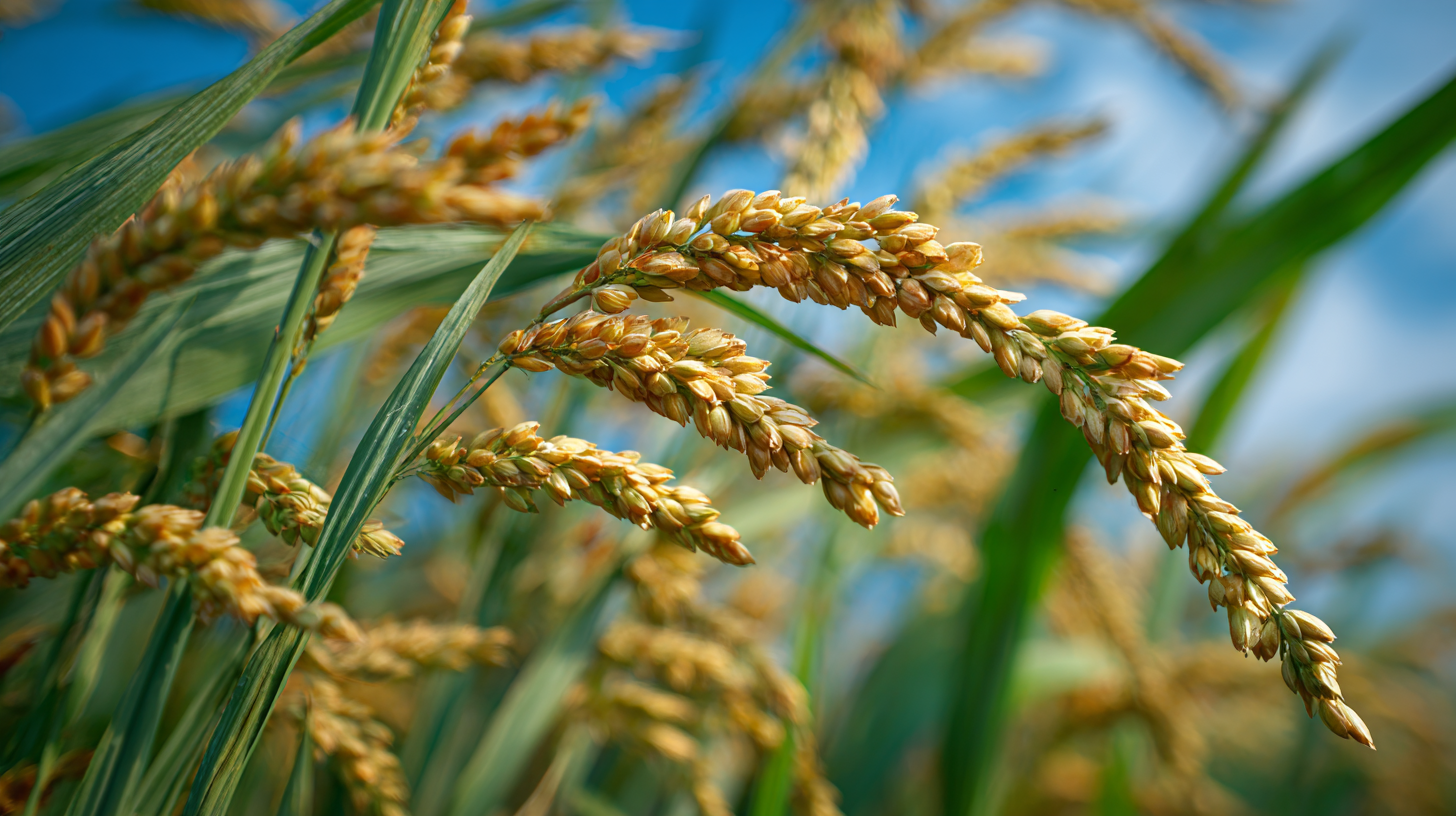
Have you heard about seaweed extracts? They've been gaining quite a buzz as a pretty impressive alternative to the usual chemical fertilizers. Many folks see them as a natural way to give plants a good boost—not just to grow better, but also to become more resilient against stress from their environment. I came across a study in the Journal of Applied Phycology that said using seaweed-based fertilizers can actually bump up crop yields by as much as 20% compared to regular fertilizers. That’s mainly thanks to hormones like auxins, gibberellins, and cytokinins in the seaweed, which help plants grow stronger and handle tougher conditions better.
On top of that, these extracts do wonders for soil health, too. According to research from the International Journal of Agronomy, adding seaweed extracts to the land helps boost the microbial life in the soil, which means nutrients get more available to plants—and you might even cut back on synthetic fertilizers. With everyone zooming toward more sustainable farming, bringing seaweed into the mix seems like a smart move. It’s a natural way to not only crank up productivity but also to lessen the environmental footprint. Honestly, I think it's pretty exciting—especially with climate change throwing new challenges at our crops every year.
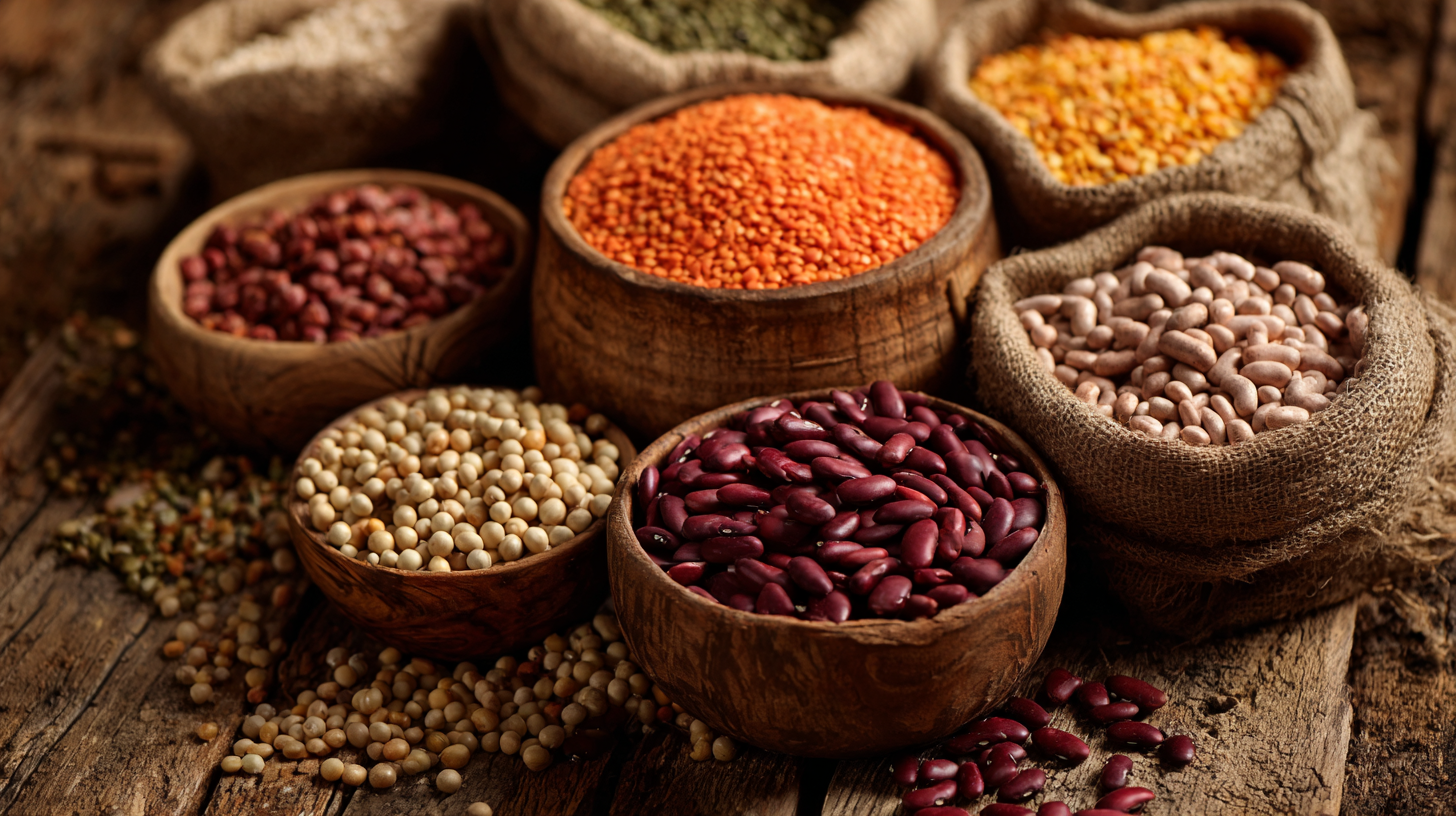
You know, cover crops have really become a big deal in sustainable farming these days. People are starting to see just how useful they are for boosting soil health and keeping erosion in check. I read a report from the USDA that says using cover crops can add up to 1.5 tons of organic matter per hectare each year—that's a pretty big boost for making nutrients available for whatever crops come next. Plus, that organic matter helps improve the soil’s structure and helps air and water move around better, which means farmers don’t always have to rely so much on synthetic fertilizers. Pretty neat, right?
And it doesn’t stop there. Cover crops are also fantastic for preventing soil erosion. The Soil and Water Conservation Society pointed out that tossing in these plants can cut down erosion by 50% or even more—though it depends on where you are and what crops you choose. Basically, by growing a layer of green cover, these crops protect the soil from heavy rain impacts, reducing runoff and stopping the topsoil from washing away. This is especially important on hillsides or slopes, where erosion can be a real issue. In the long run, it’s all about keeping the land healthy and productive for years to come.
When it comes to finding sustainable farming methods, you really can't overlook the importance of mycorrhizal fungi. These tiny champions form a symbiotic relationship with plant roots—helping plants absorb nutrients and water way more effectively. The result? Healthier crops and better yields, plain and simple. Unlike those conventional fertilizers that often harm the environment, these fungi naturally boost soil health and support biodiversity. It's kind of an ancient trick that’s making a comeback among eco-minded farmers who want to cut down on chemical inputs and go more natural.
At Innovation Meiland (Hefei) Co., LTD., we genuinely see the huge potential in using mycorrhizal fungi as a green, sustainable solution for agriculture. Our team is dedicated to researching and developing innovative pesticides and other farming formulations that harness biological solutions like this. By bringing our expertise to the table, we’re working to integrate these natural methods into everyday farming practices—giving farmers reliable alternatives that improve soil vitality and help crops stand strong. As we explore these promising options, our main goal is to help shape a more sustainable future for farming while keeping our ecosystems healthy and thriving.
| Dimension | Description | Benefits | Application |
|---|---|---|---|
| Mycorrhizal Fungi | Fungi that form symbiotic relationships with plant roots, enhancing nutrient uptake. | Improved nutrient absorption, increased drought resistance, enhanced soil structure. | Used as an inoculant in soil for various crops to maximize growth. |
| Compost | Decomposed organic matter that enriches soil with nutrients and microorganisms. | Enhances soil fertility, improves moisture retention, reduces waste. | Mixed into soil pre-planting or used as a top dressing during the growing season. |
| Biochar | Charred organic material that improves soil health and sequesters carbon. | Enhances soil fertility, reduces nutrient leaching, increases soil pH buffering. | Incorporated into soil or used as a growth medium for plants. |
| Green Manure | Cover crops grown to improve soil health and fertility when decomposed. | Adds organic matter, improves nitrogen content, reduces soil erosion. | Planted in rotation or intercropping systems, tilled into soil before planting main crops. |
: Biological fertilizers are alternative nutrient sources like microbial inoculants, compost teas, and biochar that enhance soil health and crop productivity. They are important because they can reduce chemical fertilizer dependency by up to 30%, curtail environmental pollution, lower farming costs, and promote economic sustainability.
Farmers can determine the nutrient requirements of their crops through soil testing, which helps identify deficiencies and allows for tailoring of the fertilization strategy effectively.
Agroecological practices can lead to a 15-20% increase in farm productivity, increased yields, foster biodiversity, and enhance farmers' resilience against climate change while meeting growing global food demand.
Seaweed extracts can increase crop yields by up to 20% compared to conventional fertilizers due to the presence of phytohormones that stimulate plant growth and enhance resilience against environmental stressors.
The application of seaweed extracts increases microbial biomass in soil, which improves nutrient availability and reduces the need for synthetic fertilizers.
Cover crops improve soil fertility and manage erosion by increasing soil organic matter, enhancing nutrient availability, improving soil structure and aeration, and reducing soil erosion rates by 50% or more.
Cover crops improve water retention by enhancing soil structure and aeration, thus helping to retain moisture more effectively and reducing the need for synthetic fertilizers.
Reducing soil erosion is crucial for ensuring long-term sustainability and productivity in farming systems, especially in hilly or sloped areas where erosion poses a significant concern.
Farmers can maximize the effectiveness of biological fertilizers by maintaining proper application rates and timing, and by engaging in farmer education programs that promote knowledge transfer regarding best practices.
Integrating sustainable alternatives is important because they help increase productivity, minimize environmental impact, support crop resilience in the face of climate change, and contribute to achieving sustainable farming goals.
When it comes to finding sustainable ways to farm, exploring unique alternatives to traditional fertilizers really matters if we want to improve agricultural practices. In this blog, I’m going to dive into some cool new nutrient sources like biological fertilizers and biochar—these can boost soil health and crop yields without messing up the environment. If you’re interested in making your soil better, things like composting, using seaweed extracts, and planting cover crops can make a big difference—helping with fertility and controlling erosion too.
Plus, get this—mycorrhizal fungi are kinda like nature’s little helpers. They assist plants in soaking up nutrients, offering a natural fix to what conventional fertilizers sometimes struggle with. And as Innovation Meiland (Hefei) Co., Ltd. keeps pushing forward with new agricultural products, jumping on these sustainable options could really change the game. It’s all about farming smarter—creating healthier ecosystems and, hopefully, a more productive future for everyone.
